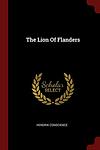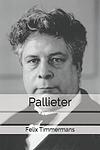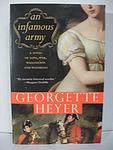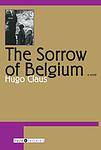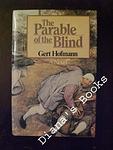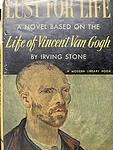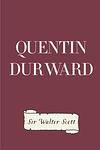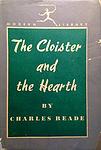The Greatest "Historical fiction, Belgium" Books of All Time
Click to learn how this list is calculated.
This list represents a comprehensive and trusted collection of the greatest books. Developed through a specialized algorithm, it brings together 300 'best of' book lists to form a definitive guide to the world's most acclaimed books. For those interested in how these books are chosen, additional details can be found on the rankings page.
Genres
Historical fiction is a genre of literature that combines fictional stories with real historical events, settings, and characters. These books often take place in a specific time period and are based on research and factual information, but also include imaginative elements to create a compelling narrative. Historical fiction allows readers to experience the past in a unique and engaging way, while also providing insight into the social, cultural, and political issues of the time.
Countries
Date Range
Reading Statistics
Click the button below to see how many of these books you've read!
Download
If you're interested in downloading this list as a CSV file for use in a spreadsheet application, you can easily do so by clicking the button below. Please note that to ensure a manageable file size and faster download, the CSV will include details for only the first 500 books.
Download-
1. Cloud Atlas by David Mitchell
This novel is a unique blend of six different stories, each set in a different time and place, spanning from the 19th century South Pacific to a post-apocalyptic future. Each tale is written in a different style, reflecting the time and setting it represents, and they are all connected through shared themes and recurring motifs. The stories are nested within each other, with each interrupted by the next, only to be concluded in the second half of the book. The novel explores themes of predacity, civilization, reincarnation and the eternal recurrence of the same behaviors throughout history.
-
2. Parade's End by Ford Madox Ford
The novel chronicles the life of Christopher Tietjens, an officer in the British Army during World War I, and his complex relationships with two women: his adulterous wife Sylvia and a young suffragette named Valentine. The story is set against the backdrop of a changing society and the devastation of war, exploring themes of duty, honor, and the struggle between traditional values and modernism.
-
3. The Flanders Road by Claude Simon
The novel delves into the complexities of memory and the chaos of war, weaving together the narratives of several characters whose lives are entangled by the events of World War II. Set against the backdrop of the German invasion of France, the story unfolds through a series of flashbacks and stream-of-consciousness reflections, primarily focusing on a French cavalry officer captured by the Germans. As the characters grapple with their experiences and relationships, the book explores themes of loss, betrayal, and the elusive nature of truth, all while challenging traditional narrative structures with its fragmented and non-linear approach to storytelling.
-
4. The Lion of Flanders by Hendrik Conscience
"The Lion of Flanders" is a historical novel set in the 14th century, during the Battle of the Golden Spurs in Flanders. The story revolves around the struggle of the Flemish people against French oppression, with a particular focus on the life of the main character, a brave knight. The novel is recognized for its vivid depiction of the battle and the spirit of nationalism, making it an important piece of Flemish literature.
-
5. Pallieter by Felix Timmermans
"Pallieter" is a classic Flemish novel that depicts the life of a jovial and life-loving man, Pallieter, who lives in harmony with nature in a small Belgian town. The story showcases his love for the simple pleasures of life, his interactions with the townsfolk, and his deep connection with the natural world. However, when industrialization threatens his idyllic lifestyle, Pallieter decides to leave his beloved town. The novel is a celebration of life and nature, while also exploring the impact of industrialization on rural life.
-
6. An Infamous Army by Georgette Heyer
Set against the backdrop of the Battle of Waterloo, this historical novel weaves a tale of love, valor, and the complexities of war. Through the eyes of its characters, it explores the lives of British aristocrats who find themselves entangled in the events leading up to and during the infamous battle. The narrative not only delves into the strategies and turmoil of warfare but also paints a vivid picture of the social intricacies and romances of the time. Combining meticulous historical detail with a compelling love story, the book offers a rich exploration of a pivotal moment in European history, highlighting both the heroism and the human cost of conflict.
-
7. The Sorrow of Belgium by Hugo Claus
"The Sorrow of Belgium" is a coming-of-age story set against the backdrop of World War II. The narrative follows the life of a young boy in a Flemish town, as he navigates through the complexities of adolescence, family relationships, and the harsh realities of war. The novel provides an insightful exploration of Belgian history, culture, and the nation's struggle under the Nazi occupation, all through the eyes of the protagonist.
-
8. The Parable of the Blind by Gert Hofmann
"The Parable of the Blind" is a darkly comedic novel that follows six blind men who are hired to pose as models for a famous painter's depiction of a biblical parable. As they journey to the painter's studio, they struggle with their dependence on each other and the outside world, grappling with the limitations and challenges of their blindness. The narrative explores themes of human vulnerability, the nature of perception, and the absurdity of existence.
-
9. Checkmate by Dorothy Dunnett
This novel is the climactic conclusion to a historical fiction series set in the mid-16th century, weaving together the intricate tales of political and personal intrigue across Europe. The story follows the journey of a charismatic and enigmatic protagonist, a master of disguise and strategy, as he navigates the treacherous waters of international politics, warfare, and personal vendettas. His quest for redemption and his complex relationships, including a tumultuous romance, drive the narrative towards a dramatic finale. The book combines rich historical detail with a deep understanding of human nature, showcasing the protagonist's ultimate challenge in a game of power, loyalty, and love.
-
10. Lust For Life by Irving Stone
This novel is a vivid portrayal of the tumultuous and passionate life of a renowned post-impressionist painter. It delves deeply into his struggles with poverty, mental illness, and a largely unappreciated genius during his lifetime. The narrative is rich with the artist's fervent desire to capture the essence of life and beauty through his revolutionary art, despite facing rejection and misunderstanding from those around him. Through a blend of factual research and imaginative interpretation, the book brings to life the painter's intense relationships, his bouts of fervor and despair, and his relentless pursuit of artistic innovation and expression, offering readers a compelling insight into the soul of a man who transformed pain and tragedy into some of the world's most beloved works of art.
-
11. Quentin Durward by Sir Walter Scott
"Quentin Durward" is a historical novel set in the 15th century, revolving around the adventurous life of its titular character, a young Scottish man who travels to France to seek his fortune. In the service of King Louis XI, Quentin becomes embroiled in the complex political machinations of the time, involving the struggle between the King and Charles the Bold, Duke of Burgundy. Throughout his journey, Quentin also finds himself in a romantic entanglement with Isabelle, Countess of Croye, navigating a path filled with danger, intrigue, and the moral challenges of loyalty and honor.
-
12. The Military Philosophers by Anthony Powell
This novel, part of a larger series, delves into the intricacies of British society during World War II, seen through the eyes of its protagonist, who navigates the complexities of military bureaucracy and the shifting social landscape. Set against the backdrop of significant historical events, the narrative explores themes of power, change, and the enduring nature of human connections. Through his encounters with a wide array of characters, from high-ranking officials to eccentric peers, the protagonist's journey reflects on the impact of war on personal and collective identities, offering a nuanced examination of the era's moral and philosophical dilemmas.
-
13. The Cloister and the Hearth by Charles Reade
Set in the 15th century, this historical novel tells the story of a young Dutch artist named Gerard Eliassoen, who abandons his lover, Margaret, and their children to become a Dominican friar, while she, believing him dead, becomes a nun. The narrative follows Gerard's adventures across Europe, his struggles with his faith, and his eventual reunion with Margaret. The novel explores themes of love, faith, and duty, and provides a vivid depiction of medieval life.
-
14. A Long Long Way by Sebastian Barry
This novel vividly captures the harrowing experiences of a young Irish soldier caught in the brutal trenches of World War I. As he navigates the horrors of war, he also grapples with the complex political tensions of his homeland, torn between loyalty to the British forces and the rising call for Irish independence. Through his journey, the protagonist confronts the brutal realities of conflict, the bonds of camaraderie, and the personal quest for identity amidst the chaos of war and the shifting landscapes of early 20th-century Ireland. The narrative combines historical detail with profound emotional depth, exploring themes of loyalty, identity, and the devastating impact of war on the human spirit.
-
15. War And Turpentine by Stefan Hertmans
"War and Turpentine" by Stefan Hertmans is a historical novel that follows the life of the author's grandfather, Urbain Martien, who lived through both World War I and II. The book is divided into three parts: Urbain's childhood in poverty-stricken Belgium, his experiences as a soldier in WWI, and his life as a struggling artist after the war. The novel explores themes of love, loss, and the impact of war on individuals and society. Through Martien's story, Hertmans paints a vivid picture of a bygone era and the struggles faced by those who lived through it.
-
16. Headlong by Michael Frayn
In the novel, a young philosopher and his wife discover what they believe to be a lost masterpiece by a famous Renaissance artist in a dilapidated country house. As the protagonist becomes increasingly obsessed with proving the painting's authenticity and securing it for himself, he plunges headlong into a series of comic and tense situations. The narrative cleverly intertwines themes of art history, morality, and human folly, all while satirizing academic pretensions and the art world's eccentricities.
Reading Statistics
Click the button below to see how many of these books you've read!
Download
If you're interested in downloading this list as a CSV file for use in a spreadsheet application, you can easily do so by clicking the button below. Please note that to ensure a manageable file size and faster download, the CSV will include details for only the first 500 books.
Download


